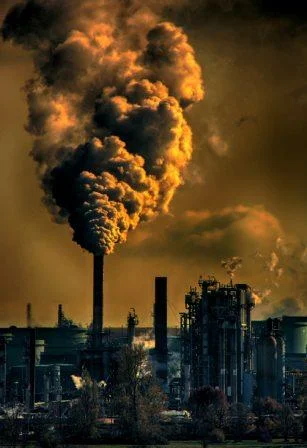What Climate Change Meaning
Climate change refers to long-term shifts in temperature, precipitation, winds, and other measures of climate that occur over decades or longer. These changes can be caused by natural factors, such as changes in the sun's intensity or volcanic eruptions, but human activities are the main cause of climate change. These activities include the burning of fossil fuels (such as coal, oil, and gas), which release large amounts of carbon dioxide and other greenhouse gases into the atmosphere. These gases trap heat from the sun, causing the Earth's surface and lower atmosphere to warm.
The Earth's climate has changed many times over its 4.5 billion-year history, but the pace of climate change has accelerated in recent decades. The average global temperature has risen by about 1.1 degrees Celsius (2 degrees Fahrenheit) since the beginning of the Industrial Revolution in the 1800s, and the rate of warming has increased over the past few decades. This warming has had many impacts on the Earth's systems, including rising sea levels, more frequent and severe heatwaves, storms, and changes in the distribution and behavior of plants and animals.
It is important to take action to address climate change, as the impacts of a warming planet will continue to grow and become more severe if greenhouse gas emissions are not reduced. Many governments, businesses, and individuals are working to reduce their carbon footprint and adopt practices that are more sustainable and environmentally friendly.
The main Indicators, Impacts, and Global Efforts to Tackle Climate Change
- One of the main indicators of climate change is rising global temperatures. The Earth's average surface temperature has risen by about 1.1 degrees Celsius (2 degrees Fahrenheit) since the beginning of the Industrial Revolution in the 1800s, and the rate of warming has increased over the past few decades. This warming has been linked to a variety of impacts, including more frequent heatwaves, droughts, and storms, and changes in the distribution and behavior of plants and animals.
- Climate change is not just a problem for the future – it is already having significant impacts on the Earth's systems and people. For example, rising sea levels have caused flooding and erosion in coastal areas, and more frequent and severe heat waves have contributed to heat-related illness and death. Climate change is also having an impact on agriculture, as changing temperatures and rainfall patterns can disrupt crop yields.
- While the impacts of climate change are global, they are not evenly distributed. Some regions and communities are more vulnerable to the impacts of climate change than others, particularly those that are already facing other challenges such as poverty, lack of infrastructure, or political instability. It is important to ensure that efforts to address climate change take into account the needs and rights of vulnerable communities.
- There are a number of ways that individuals, businesses, and governments can reduce their carbon footprint and contribute to efforts to address climate change. These include reducing energy consumption, increasing the use of renewable energy sources, adopting sustainable land use practices, and supporting policies that reduce greenhouse gas emissions.
- Tackling climate change will require a global effort, as greenhouse gases do not respect national borders. Many countries have committed to reducing their greenhouse gas emissions as part of the Paris Agreement, an international treaty signed in 2015 that aims to limit global warming to well below 2 degrees Celsius (3.6 degrees Fahrenheit). However, more needs to be done to meet this goal and mitigate the impacts of climate change.
- To address climate change, it is important to reduce greenhouse gas emissions. This can be done through a variety of measures, including increasing the use of renewable energy sources (such as solar and wind power), improving energy efficiency, and adopting sustainable land use practices. Many governments, businesses, and individuals are taking steps to reduce their carbon footprint and adopt more environmentally friendly practices.
Conclusion
Climate change is a complex and significant global challenge that requires immediate and sustained action. The evidence is clear that human activity, particularly the burning of fossil fuels and other activities that release greenhouse gases into the atmosphere, is the main cause of climate change. The impacts of climate change, including rising sea levels, more frequent and severe heatwaves, and storms, and changes in the distribution and behavior of plants and animals, are already being felt around the world. These impacts are likely to become more severe if greenhouse gas emissions are not significantly reduced.
To address climate change, it is essential to reduce greenhouse gas emissions through a variety of measures, including increasing the use of renewable energy sources, improving energy efficiency, and adopting sustainable land use practices. This will require collective action from governments, businesses, and individuals around the world. It is not too late to take action to address climate change, but the longer we wait, the more difficult and costly it will be to mitigate the impacts.
